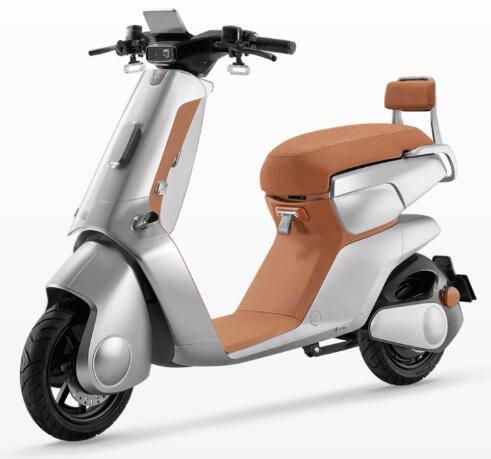Exploring the Distinctions: E-Scooter vs. E-Moped
In the rapidly evolving landscape of electric mobility, e-scooters ande-mopedshave gained immense popularity as sustainable and efficient modes of transportation. While both fall under the umbrella of electric two-wheelers, there are significant differences that set them apart. In this article, we'll delve into the nuances that distinguish e-scooters from e-mopeds.
Design and Structure
E-scooters and e-mopeds differ fundamentally in their design and structure. E-scooters, characterized by their compact size and minimalistic frame, are akin to traditional scooters but powered solely by electric motors. On the other hand, e-mopeds often resemble small motorcycles with a more robust build, including a frame that supports a rider in a seated position.
Speed and Range
One of the primary distinctions lies in the speed and range capabilities of these electric vehicles. E-scooters are generally designed for shorter urban commutes, offering moderate speeds typically ranging from 15 to 30 miles per hour. They are ideal for navigating through city traffic and covering relatively shorter distances. In contrast, e-mopeds tend to have higher speeds, often reaching 45 miles per hour or more, and possess a longer range, making them suitable for longer journeys.
Licensing and Regulations
The regulatory landscape for e-scooters and e-mopeds varies, reflecting their different use cases and capabilities. In many regions,e-scootersare considered as low-speed electric bicycles, often exempt from stringent licensing requirements. Riders may not need a special license and can ride them in bike lanes. On the contrary, e-mopeds, with their higher speeds and potential classification as motor vehicles, may require riders to have a valid motorcycle license.
Infrastructure and Charging
The charging infrastructure for these two types of electric vehicles also differs. E-scooters are typically powered by rechargeable batteries that can be easily removed and charged at home or swapped at charging stations. Their charging requirements are relatively straightforward. In contrast, e-mopeds may have larger batteries, and their charging infrastructure may be more akin to traditional electric vehicle charging stations, equipped with higher-capacity chargers.
Use Cases and Target Audience
E-scooters and e-mopeds cater to distinct target audiences and use cases. E-scooters are often embraced by urban commuters looking for an agile and eco-friendly means of traveling short distances. They are well-suited for the last-mile connectivity, allowing riders to cover the gap between public transportation and their final destination. On the other hand, e-mopeds are geared towards those seeking a more substantial, motorcycle-like experience for longer commutes or leisure rides.
Choosing the Right Electric Two-Wheeler
Selecting between an e-scooter and an e-moped ultimately depends on individual preferences, commuting needs, and local regulations. While e-scooters are nimble and efficient for urban environments, e-mopeds provide a more robust solution for longer journeys and riders who prefer a seated position.
In conclusion, the distinction between e-scooters and e-mopeds goes beyond their appearances. It encompasses factors such as speed, range, regulatory considerations, and infrastructure. Understanding these differences is crucial for potential buyers to make an informed decision based on their specific requirements and preferences.
For more information on electric two-wheelers or to explore options from reputable suppliers, feel free tocontact us. Our team is dedicated to providing assistance and guidance to help you find the perfect electric vehicle for your needs. Choose sustainability, choose electricity!
163
0
0



Comments
All Comments (0)